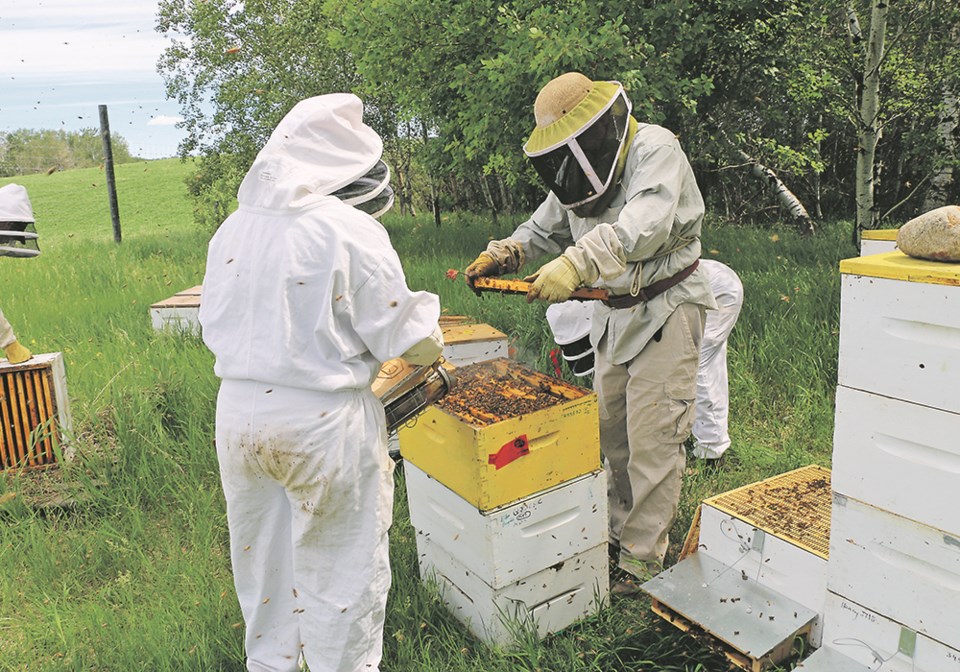The school was the first veterinary college in North America to establish a honeybee research and teaching program six years ago, co-founded by Dr. Elemir Simko.
“(The program) has just grown and grown and he (Simko) realized the significance of how much work there is to be done. The idea came along that we should be hiring somebody who could really focus on this area completely, so we’re really building capacity in the field,” Gillian Muir, dean of WCVM.
Muir said veterinarians have an important role to play in maintaining and improving the health and diagnosis of honeybees and other pollinators across the Prairies, which has the largest population of pollinators in Canada.
The Prairies contain about 70 percent of Canada’s honeybee colonies, including grasslands that supports 387 species of bees.
For several years, scientific and media reports have been abuzz with honeybee populations collapsing because of bacterial disease, viruses, mites and other pests, as well as habitat concerns and the effects of pesticides.
“Not only are they important for producing honey, they are significant because there’s so many of them, they’re some of Canada’s main pollinators,” said Muir.
She said almost one-third of food grown relies on wild pollinators, as well as honeybees. In addition to producing honey, they pollinate fruits and vegetables, alfalfa and other forage crops.
“So they’re really essential to food production in general as well as for making honey,” she said.
Muir said the new research chair will be a good fit for the WCVM because it will further focus on pathology to find the causes of issues and overall ecosystem health.
“Then we can start to not only treat the diseases that we’re uncovering, but also work with beekeepers, with management strategy and how best to manage their hives so that they reduce the incidence of these kinds of outbreaks and diseases,” she said.
The school is in the process of securing the $750,000 in funding over five years from the agriculture sector, after which it will become a tenured faculty position and the long-term responsibility of the U of S.
BASF Canada has already committed a third of the required amount to help fund the research chair.
“We have a lot of aspirations in similar ways and so it made a lot of sense to build that partnership and provide the funding,” said Nicole McAuley, head of communications and public affairs with BASF.
Muir said the WCVM expects to post the job next year.




